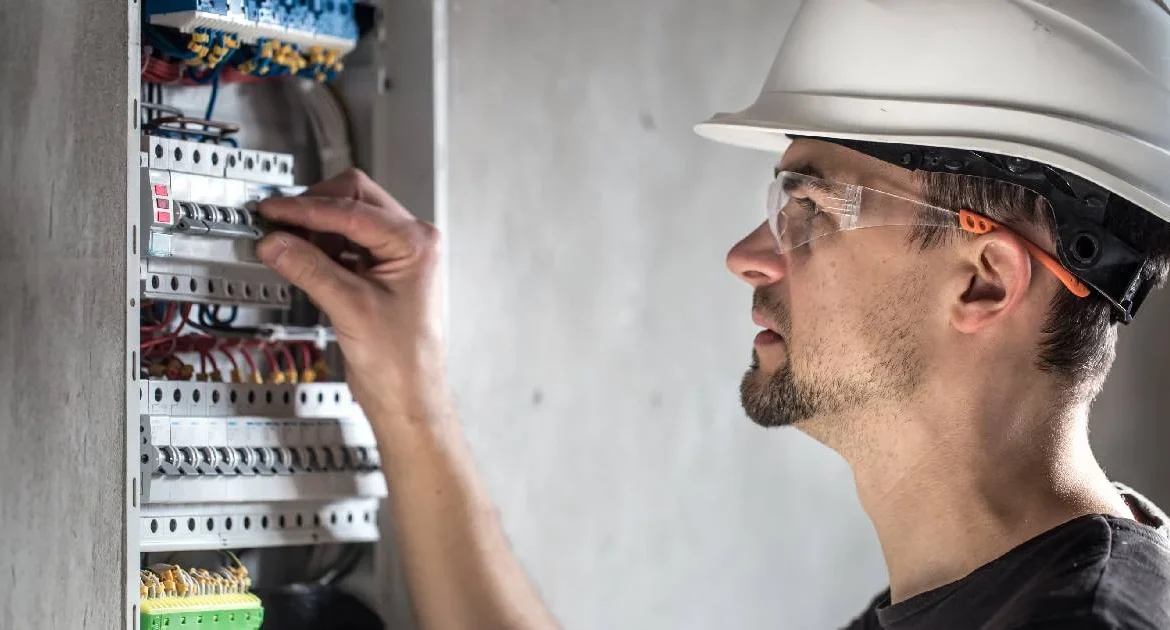If you’re a homeowner or a landlord in the UK, you may have heard about EICR certificates and their potential impact on your home insurance. In this Q&A blog, we’ll delve into the world of EICR certificates and home insurance, answering some common questions and providing essential information to help you navigate this important aspect of property ownership and maintenance.
EICR Certificate
Certified EICR service for up to 15 circuits. Our accredited engineers provide fault finding, diagnostics, and we can do a PAT in the same visit. Legally it’s required every 5 years.
What is an EICR Certificate, and why is it important
An Electrical Installation Condition Report (EICR) certificate is a formal document issued after an inspection and testing of the electrical installations in a property. It assesses the safety and condition of the electrical systems, identifying any defects, damage, or non-compliance with electrical safety standards. It is a crucial document for ensuring the safety of the property’s occupants and is often required for regulatory compliance and insurance purposes.
Who should get an EICR Certificate, and when is it needed?
EICR certificates are typically needed for residential properties and are often required in the following situations:
- New installations: When a new electrical installation is completed.
Change of occupancy: Before a new tenant or homeowner moves in. - Periodic inspections: At regular intervals, depending on the type of property (e.g., every five years for rental properties).
- After modifications: Following any significant electrical work in the property.
How does an EICR Certificate affect home insurance?
EICR certificates can have an impact on your home insurance in two main ways:
- Policy eligibility: Some insurance providers may require an up-to-date EICR certificate as a condition for providing coverage. Failure to produce a valid certificate could result in the insurer refusing to cover your property.
- Premiums: The safety of the electrical system in your property can affect the cost of your insurance premiums. If the inspection reveals safety issues or defects, your premiums may increase. On the other hand, a well-maintained electrical system could result in lower premiums.
Can I perform the EICR inspection myself?
EICR inspections should be carried out by a qualified and registered electrician who is trained to assess the electrical safety of your property. Attempting to perform the inspection yourself is not recommended, and it may not be recognized by insurers or regulatory authorities.
What should I do if the EICR inspection identifies issues with my electrical system?
If the EICR inspection reveals problems, it is essential to address them promptly. The electrician who conducted the inspection should provide you with a report detailing the issues and recommendations for rectification. It’s crucial to follow their guidance, make the necessary repairs, and obtain a follow-up inspection to ensure your electrical system complies with safety standards.
How can I find a qualified electrician to conduct an EICR inspection?
To find a qualified electrician to perform an EICR inspection, consider the following steps:
- Check for certification: Ensure the electrician is a member of a recognized professional body, such as NICEIC, ELECSA, or NAPIT. These organizations maintain lists of registered electricians.
- Ask for recommendations: Seek recommendations from friends, family, or colleagues who have recently had EICR inspections.
- Check reviews: Look for online reviews and ratings of local electricians to get a sense of their reputation and quality of service.
Request quotes: Obtain quotes from multiple electricians to compare costs and services.
Can an outdated EICR certificate affect my home insurance?
Yes, if your property has an outdated or expired EICR certificate, it may affect your insurance eligibility and premiums. Insurance providers often require a valid and up-to-date certificate to ensure the electrical safety of the property.
How often should I update my EICR certificate?
The frequency of EICR inspections depends on the type of property and its use. For rental properties, it is typically recommended every five years. For owner-occupied homes, it is not legally required but is advisable for safety reasons. You should check with your electrician or local regulations for specific guidelines.
In conclusion, EICR certificates play a crucial role in ensuring the safety of your property’s electrical systems. They can affect your home insurance in terms of eligibility and premiums, so it’s essential to stay informed and keep your electrical installations in good condition. Always consult with qualified electricians and insurance providers for the most up-to-date information and requirements related to EICR certificates and home insurance.



